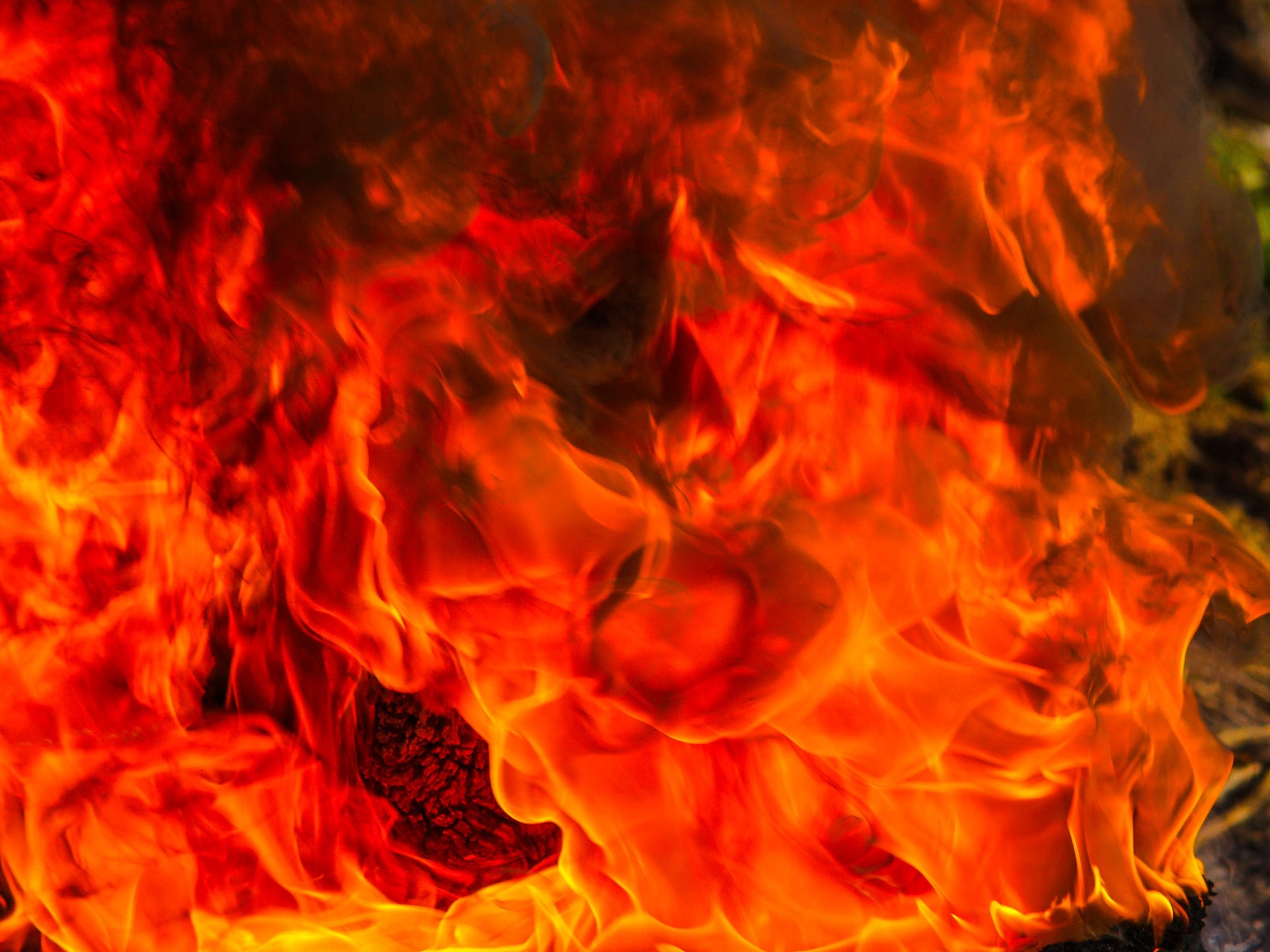Igniting Curiosity: Exploring The Concept Of "On Fire"
The phrase "on fire" has captivated minds and conversations, sparking curiosity across various contexts. Whether it’s a literal blaze, a metaphorical triumph, or a symbol of passion and energy, "on fire" carries a powerful resonance. From sports enthusiasts describing a star athlete's unstoppable performance to artists channeling their creativity, the versatility of this term is truly remarkable. But what does it really mean to be "on fire," and how does it apply to our everyday lives?
In this comprehensive guide, we’ll delve into the many layers of the "on fire" phenomenon. We’ll explore its historical origins, its role in pop culture, and how it has evolved into a modern expression of excellence and intensity. Along the way, we’ll answer thought-provoking questions, provide actionable insights, and examine real-life examples that illustrate what it means to be "on fire" in different spheres of life.
Whether you’re here to uncover the deeper meaning of "on fire" or simply looking for inspiration to ignite your own passions, this article has you covered. Join us as we break down this dynamic phrase and discover why it continues to resonate so strongly across generations and cultures.
- Do Do Jesse Watters And Greg Gutfeld Mesh Well
- Exclusive Mrs Callace Uncensored Video Surfaces Online
Table of Contents
- What Does "On Fire" Mean?
- Is There a History to "On Fire"?
- The Symbolism of "On Fire"
- Why Does "On Fire" Resonate So Widely?
- How to Become "On Fire" in Life?
- "On Fire" in Pop Culture
- Can "On Fire" Boost Motivation?
- "On Fire" in Sports
- How Does "On Fire" Apply to Creativity?
- Real-Life Examples of Being "On Fire"
- Is Being "On Fire" Sustainable?
- How Do You Maintain Being "On Fire"?
- "On Fire" in Business and Leadership
- Is There a Downside to Being "On Fire"?
- Steps to Reignite Your Fire
What Does "On Fire" Mean?
The expression "on fire" can be interpreted in multiple ways, depending on the context. Literally, it refers to something that is burning due to flames. However, in a figurative sense, being "on fire" signifies exceptional performance, energy, or passion. For example, a basketball player hitting every shot in a game might be described as being "on fire," while an entrepreneur experiencing rapid business growth might also earn the same label.
This dual meaning makes "on fire" a versatile and universally understood term, uniting the physical and emotional aspects of intensity. It’s a phrase that captures the essence of being unstoppable, whether in a professional pursuit, personal goal, or artistic endeavor.
Is There a History to "On Fire"?
The origins of the phrase "on fire" can be traced back to its literal meaning—objects or substances engulfed in flames. Over time, this vivid imagery was adapted to describe situations of extreme intensity or passion. The transition likely occurred as people began seeing parallels between the consuming nature of fire and the overwhelming drive or success exhibited by individuals.
- Anime Streaming Hq Watch Vegamovies Anime Online
- Kaitlyn Krems Takes A Sultry Shower A Mustsee For Fans
In literature, fire has long been a symbol of transformation, destruction, and rebirth. From ancient mythologies to modern-day expressions, the association between fire and human emotions has remained strong. This historical backdrop adds depth to the contemporary use of "on fire" as a metaphor for excellence and energy.
The Symbolism of "On Fire"
Fire has been a powerful symbol throughout history, representing everything from destruction to inspiration. In the context of being "on fire," it often signifies unwavering determination, creativity, and a zest for life. Fire’s ability to illuminate and transform makes it a fitting metaphor for personal and professional achievements.
Whether it’s a musician delivering a spellbinding performance or a scientist making groundbreaking discoveries, being "on fire" encapsulates the extraordinary moments when individuals surpass expectations and leave a lasting impact.
Why Does "On Fire" Resonate So Widely?
The phrase "on fire" resonates because it taps into universal human experiences. Everyone has moments when they feel unstoppable, motivated, and deeply connected to their goals. These are the times when they are metaphorically "on fire," radiating confidence and energy that inspires others.
Additionally, the imagery of fire is universally understood, transcending language and cultural barriers. Its dynamic nature makes it a compelling metaphor for describing peak performance and intense emotions.
How to Become "On Fire" in Life?
Becoming "on fire" in life requires a combination of mindset, effort, and focus. Here are actionable steps to help you ignite your inner fire:
- Set clear goals that excite you and align with your passions.
- Surround yourself with supportive and inspiring individuals.
- Embrace challenges as opportunities for growth.
- Maintain a positive attitude and focus on solutions rather than problems.
- Celebrate small wins to build momentum and confidence.
By adopting these strategies, you can cultivate the energy and drive needed to be "on fire" in any aspect of your life.
"On Fire" in Pop Culture
From hit songs to blockbuster movies, the phrase "on fire" has found a permanent place in pop culture. Popular tracks like Alicia Keys’ "Girl on Fire" highlight the empowering and transformative aspects of this phrase. Similarly, in movies and TV shows, characters described as being "on fire" often exhibit extraordinary abilities or achieve remarkable success.
This widespread use in entertainment underscores the universal appeal of the term, making it a cultural touchstone that continues to inspire and captivate audiences.
Can "On Fire" Boost Motivation?
Absolutely! The concept of being "on fire" can serve as a powerful motivator. When you see someone excelling in their field or hear about their achievements, it can ignite your own passion and drive to succeed. Additionally, adopting the mindset of being "on fire" can help you push through challenges and stay focused on your goals.
Motivation is contagious, and witnessing others in their "on fire" moments can inspire you to create your own. Use these instances as a source of energy and determination to fuel your journey.
"On Fire" in Sports
The sports world frequently uses the term "on fire" to describe athletes who are performing exceptionally well. Whether it’s a basketball player scoring multiple three-pointers in a row or a tennis player dominating every set, being "on fire" captures the essence of peak performance.
These moments not only define careers but also inspire fans and teammates alike. They serve as a reminder of what’s possible when talent, preparation, and opportunity align perfectly.
How Does "On Fire" Apply to Creativity?
In the realm of creativity, being "on fire" often refers to periods of heightened inspiration and productivity. Artists, writers, and musicians frequently describe feeling "on fire" when ideas flow effortlessly, and their work reaches new heights.
To tap into this state, it’s important to create an environment conducive to creativity, whether through solitude, collaboration, or exploring new experiences. Embracing the "on fire" mindset can help you unlock your full creative potential.
Real-Life Examples of Being "On Fire"
History is filled with individuals who exemplified what it means to be "on fire." From entrepreneurs like Elon Musk revolutionizing industries to athletes like Serena Williams dominating their sport, these figures inspire others through their passion, dedication, and groundbreaking achievements.
By studying their journeys, we can gain valuable insights into the qualities and habits that contribute to being "on fire." These include resilience, focus, and an unwavering belief in one’s abilities.
Is Being "On Fire" Sustainable?
While being "on fire" is exhilarating, it’s important to acknowledge that it may not be sustainable in the long term without proper balance. Burnout is a real risk, especially when the drive to succeed overshadows the need for rest and self-care.
To sustain this state, it’s crucial to manage your energy levels, set realistic expectations, and take breaks when needed. Remember that even the brightest flames need fuel to keep burning.
How Do You Maintain Being "On Fire"?
Maintaining the "on fire" state requires consistent effort and self-awareness. Here are some tips to help you stay motivated and energized:
- Practice mindfulness to stay present and focused.
- Regularly revisit your goals to ensure they remain meaningful.
- Celebrate your progress and acknowledge your achievements.
- Seek feedback and learn from both successes and failures.
- Stay curious and open to new opportunities and challenges.
By incorporating these practices into your routine, you can extend your "on fire" moments and continue to strive for excellence.
"On Fire" in Business and Leadership
In the business world, being "on fire" often translates to achieving significant milestones, driving innovation, and inspiring teams. Leaders who are "on fire" are typically characterized by their vision, adaptability, and ability to rally others around a common goal.
Such leaders serve as role models, demonstrating what’s possible when passion and purpose align. Their energy can create a ripple effect, motivating teams to push boundaries and achieve extraordinary results.
Is There a Downside to Being "On Fire"?
While being "on fire" is undoubtedly exhilarating, it’s not without its challenges. The intense focus and effort required to sustain this state can lead to physical and emotional exhaustion if not managed properly. Additionally, the pressure to maintain high performance can sometimes overshadow the joy of the journey.
To mitigate these risks, it’s important to prioritize self-care, set boundaries, and maintain a healthy balance between ambition and well-being.
Steps to Reignite Your Fire
If you’ve lost your spark, don’t worry—there are ways to reignite your fire and rediscover your passion. Here are some steps to get started:
- Reflect on what initially inspired you and reconnect with your "why."
- Set new, exciting goals that challenge and motivate you.
- Surround yourself with positive influences and supportive people.
- Take a break to recharge and gain a fresh perspective.
- Experiment with new hobbies or activities to spark creativity.
By taking these steps, you can rediscover your inner fire and continue to pursue your goals with renewed energy and enthusiasm.
Article Recommendations
- Dahvie Vanitys New Love Interest The Scoop On His New Girlfriend
- Watch Toprated Movies And Tv Shows On Vegamoviesin For Free


Detail Author:
- Name : Elva Hirthe
- Username : lewis.terry
- Email : jbogan@ondricka.biz
- Birthdate : 1979-12-27
- Address : 98238 Jamarcus Path Abernathyshire, NE 90138-0773
- Phone : +1.725.900.2394
- Company : Marks Ltd
- Job : Pressure Vessel Inspector
- Bio : Ipsa quis perferendis deleniti illo. Provident magnam recusandae consequatur rem. Quos ullam hic dolores dolorem sapiente praesentium praesentium sequi.
Socials
twitter:
- url : https://twitter.com/carmen_id
- username : carmen_id
- bio : Aliquam rerum ad voluptatem fuga fugiat molestias voluptatem. Ipsa perferendis accusamus eum ut ea.
- followers : 1258
- following : 1476
linkedin:
- url : https://linkedin.com/in/carmen.spinka
- username : carmen.spinka
- bio : Voluptatem quos laborum ducimus.
- followers : 4834
- following : 348